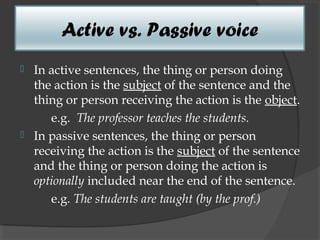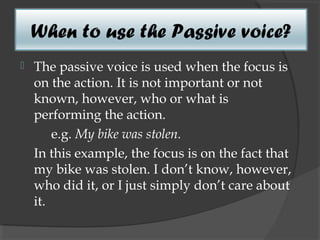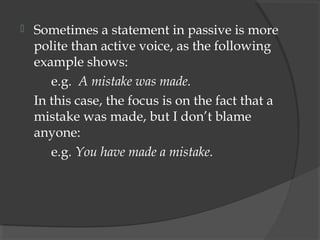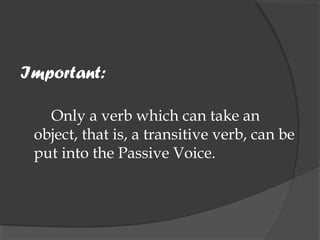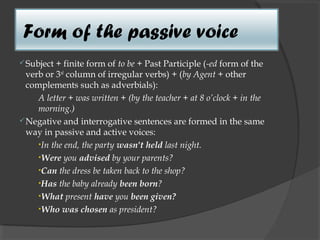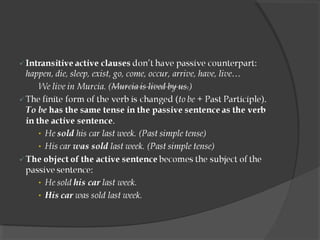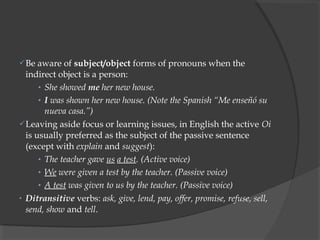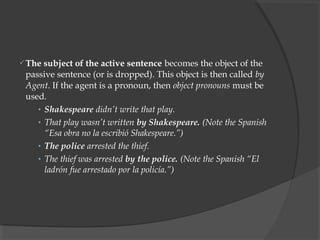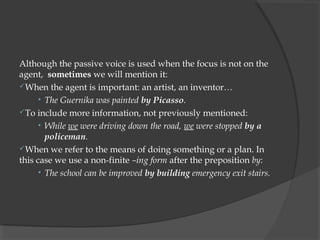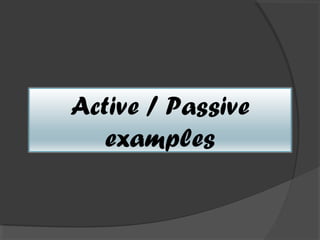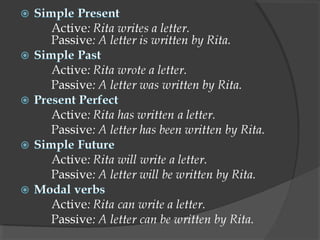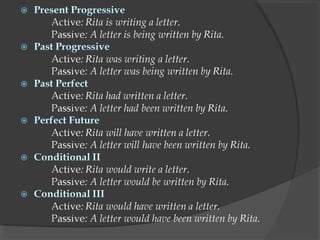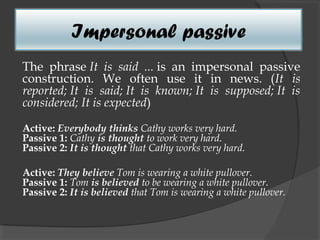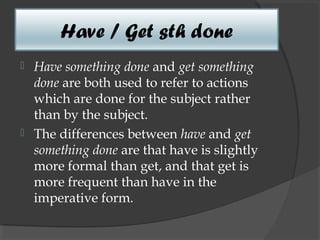The document discusses the active and passive voice in English grammar. It defines active and passive sentences, noting that the active voice has the subject performing the action while the passive voice has the subject receiving the action. The document provides examples of when to use the passive voice, such as when the focus is on the action rather than the actor, or to be more polite. It also covers the formation of the passive voice using forms of to be plus the past participle. The document provides additional examples and exceptions to the typical passive construction.

